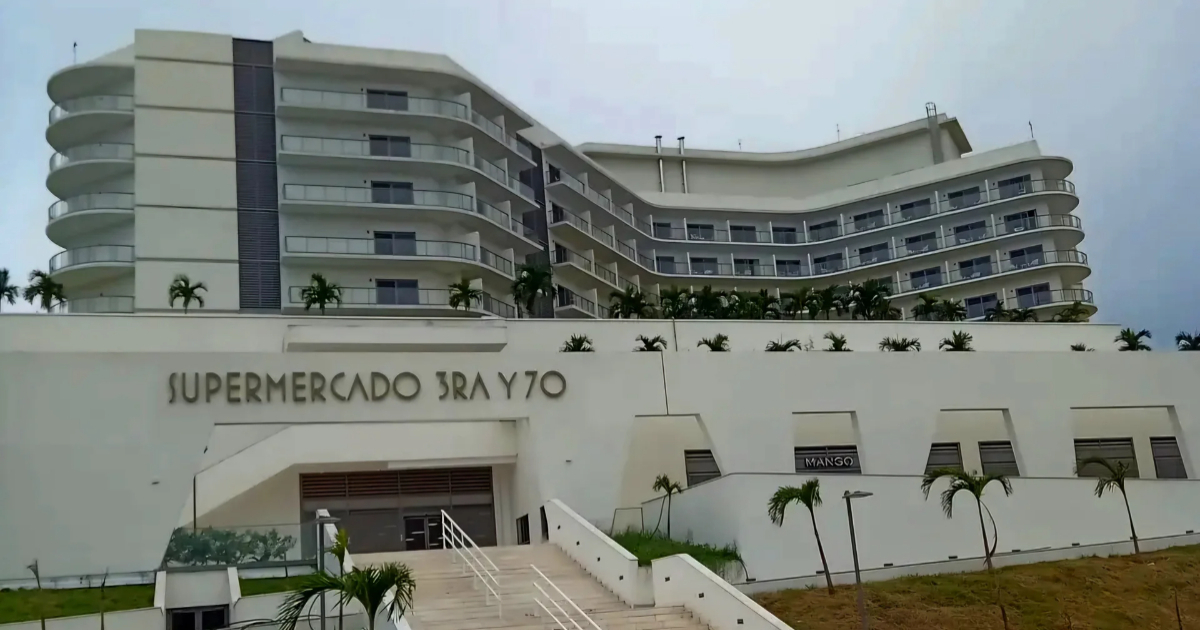
Related videos:
Joel García León, director of the official newspaper Trabajadores, published a critical article last Sunday in the digital version of the media where he questions the recent opening of the supermarket at 3rd and 70 in Havana, which operates exclusively in U.S. dollars.
García acknowledged that the model for the establishment in the lower levels of the Gran Muthu Habana hotel, whose opening has generated controversy due to its exclusion of the majority of Cuban workers, addresses the country's need to attract fresh foreign currency, a strategy previously presented at the National Assembly of the People's Power.
However, he emphasized that "our salaries are not in that U.S. currency and that, therefore, not all of us will be able to take a little leap around".
The director addressed the lack of clarity regarding the supermarket's operations, noting that payment with freely convertible currency (MLC) cards is not allowed, which has created uncertainty among customers.
"Will the value of those cards disappear, or worse, will stores currently accepting MLC be sidelined in terms of supply by supermarkets like 3rd and 70?" he questioned.
Additionally, García emphasized the impact of this opening in a context where social inequalities, rather than being exceptions, have become a constant in many aspects of Cuban society.
"It's very tough that we can't all go to that market, even the most dedicated workers, but without family remittances. Welcome to those who can do it," he commented.
Despite the criticism, García urged people to see the glass as half full, pointing out that the supermarket could represent a food solution for those who have cash in dollars.
However, he emphasized the need to improve communication and respond promptly to the legitimate concerns of the population.
"Inequality shapes consumption in Cuba, and supermarkets like this one only highlight that reality. Soon, 3rd and 70 will be just another supermarket. We'll see," he concluded.
The opening of the supermarket at 3rd and 70, in Havana, has sparked intense controversy among the population, to the extent of receiving criticism even from the official press and journalists.
Recently, official journalist Ana Teresa Badia sparked debate on social media after expressing her discontent with the opening of a dollar store supermarket, located on the ground floor of the Gran Muthu Habana hotel.
In a post on her Facebook profile, Badia highlighted the numerous questions that arise with the implementation of this business model, and she also criticized the decision for the new supermarket to allow payments only in cash in dollars or with international credit cards, excluding the MLC cards that are commonly used in other similar establishments.
Frequently Asked Questions about the Opening of the Dollar Supermarket in Havana
Why does the supermarket at 3rd and 70 in Havana only accept dollars?
The supermarket at 3rd and 70 only accepts dollars as part of a strategy by the Cuban government to attract foreign currency amidst an economic crisis. This has sparked controversy due to the economic exclusion it represents for the majority of Cubans who do not receive their salaries in this currency.
How does the opening of this supermarket affect social inequality in Cuba?
The opening of the supermarket in dollars has exacerbated social inequality in Cuba, as only those with access to foreign currency can shop there. This leaves the majority of the population, who earn their salaries in Cuban pesos, without access to basic products, widening the gap between different economic groups on the island.
What is the main criticism from Cuban journalists and public figures regarding this model of commerce?
The main criticism lies in the lack of access and exclusion created by this trade model. Figures like Joel García León and Ulises Toirac have questioned the decision to open a supermarket that only accepts dollars, pointing out that it exacerbates inequalities and does not address the needs of the majority of Cubans.
What impact does the partial dollarization of the Cuban economy have?
The partial dollarization of the Cuban economy has intensified economic inequalities, creating a parallel market where only those with access to dollars can purchase certain products. This measure has been criticized for increasing social polarization and failing to address the general shortages faced by the population.
Filed under: